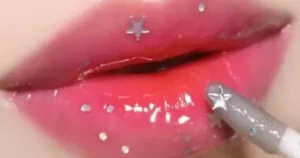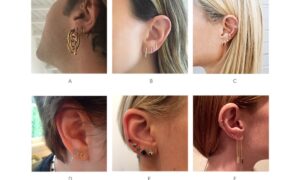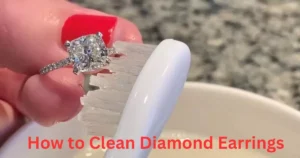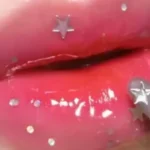To get rid of frizzy hair permanently, it’s important to address both the causes and daily maintenance. Frizz is often due to dry, damaged hair with cuticles raised from lack of moisture. Nourishing hair with weekly deep conditioning masks and sealing cuticles daily with a leave-in conditioner and oil is key to smoothness.
Further frizz can be reduced by limiting heat styling and tools to protect from additional damage, sleeping on silk instead of cotton pillowcases, regularly trimming split ends, and finding the right brush and drying method for your hair type whether curly, wavy or straight. Following these moisturizing and protective habits tailored for individual hair needs, along with occasional professional treatments like hair botox if frizz is very severe, can significantly reduce frizz over time for shinier, healthier looking hair on an ongoing basis.
Causes of Frizzy Hair
There are several potential causes of frizzy hair:
- Dryness – Lack of moisture in the hair causes cuticles to lift and hair to puff up. Dryness is often caused by heat styling, chlorine, hard water, cold weather, or not deep conditioning regularly.
- Porosity issues – Hair with high porosity absorbs moisture too quickly and loses it just as fast, leaving strands dry and prone to frizz. Low porosity hair struggles to absorb moisture at all.
- Humidity – Damp, humid air allows cuticles to expand and hair to puff up. The effect is worse for tighter curls and waves.
- Genetics – Some people are simply genetically predisposed to having frizzier hair due to curl pattern or hair structure.
- Product buildup – When hair products are not adequately rinsed out, they can leave residue on the hair that contributes to frizz.
How to Get Rid of Frizzy Hair?
The strategies below can help tame frizz over time:
Nourish Your Hair
Moisturized, conditioned hair is much less likely to frizz. Choose hair products with hydrating ingredients like oils, butter, glycerin and shea butter. Deep condition weekly.
Use a Microfiber Towel
Instead of rubbing hair with a standard cotton towel after showering, gently scrunch dry with a microfiber hair towel. Cotton towels create friction that aggravates cuticles and causes frizz. Microfiber is ultra-absorbent and gentle.
Reduce Heat Styling
Every time hair is exposed to heat from tools like blowdryers, straighteners or curling irons it suffers damage. For severely frizzy hair try to limit heat styling and let hair air dry when possible.
Seal the Cuticles
Applying a leave-in conditioner or cream and sealing with an oil helps glue down cuticles and creates a smooth surface that repels frizz-causing humidity. Look for options with smoothing ingredients like argan oil.
Shield against Humidity
On humid days hair may need extra protection. Look for frizz-fighting products containing ingredients like glycol distearate that form a subtle barrier on the hair. Or make your own homemade hair serum by mixing a few drops of argan or jojoba oil into moisturizer.
Sleep on Silk
Cotton pillowcases can cause hair breakage and split ends from friction during the night. Instead, opt for slick satin or silk which is gentler on strands and less absorbent of moisture.
Choose the Right Brush
The wrong brush can break hair and encourage frizz. For wavy or curly hair, detangle with a wide-tooth comb while hair is wet and conditioned. A medium-tooth brush or conditioning detangler can help smooth once dry.
Maintain Regular Trims
Split or damaged ends create bulk and frizz higher up the shaft. Aim to trim hair every 6-8 weeks for healthiest hair and appearance.
Frizzy Hair Treatments
For significant frizz relief, deeper treatments may be needed:
Hair Botox
“Hair botox” treatments involve a keratin protein treatment that relaxes and smooths the cuticle layer. While expensive, it can provide frizz-free results for several months.
Hair Spa
A hydrating hair spa treatment at a salon can deeply nourish dry hair with masks formulated for your specific hair type. Weekly at-home masks also deeply moisturize.
Frizzy Hair Solutions – How to Prevent Your Hair from Getting Frizzy?
Staying diligent with the strategies outlined will maintain frizz-free hair:
- Only use microfiber towels and avoid rubbing hair with cotton
- Don’t over-brush wet or dry hair
- Deep condition regularly using hair masks at least once a week
- Use a humidifier in winter when indoor air is driest
- Apply a serum or lightweight moisturizer before air-drying
- Protect hair from sun exposure which dries and damages strands
The Takeaway
While some frizz is inevitable for curly or wavy hair types, keeping moisture levels optimal and cuticles intact makes a huge difference. With consistent care including hydration, heat protection and trims, it is very possible to significantly reduce frizz overtime and have shinier, smoother hair.
How can I stop my hair from frizzing?
Refer back to the steps outlined above on moisture, sealing cuticles, limiting heat and proper brushing and drying techniques. Achieving frizz-free hair involves a diligent regiment tailored to your specific hair type and needs. Be patient – it can take several weeks of consistency to see a noticeable difference. But with the right regimen, you can absolutely prevent hair from frizzing up.
How to reduce frizzy hair naturally?
There are several effective natural ways to reduce frizz without harsh chemicals or heat:
- Use a leave-in conditioner made with natural oils like coconut, argan or jojoba oil
- Make your own smoothing hair serum by mixing few drops of oil into moisturizer
- Give hair hydrating hair masks weekly made with ingredients like avocados, yogurt or honey
- Consider an apple cider vinegar rinse which closes cuticles for sleeker appearance
- Eat fatty fish, walnuts and flaxseeds which are sources of omega-3 fatty acids good for hair health
- Drink plenty of water as dehydrated hair is more prone to frizziness
- Diffuse rather than towel dry hair after washing to Lock in moisture
Conclusion
Frizzy hair can greatly improve when moisture and cuticle health are prioritized through careful daily routines and periodic treatments. While some frizz may always occur naturally depending on hair type, diligently sealing in hydration, minimizing heat-related damage, and maintaining regular trims will significantly reduce puffiness and flyaways overtime.
With consistent dedication to nourishing hair from the inside with a healthy diet and lifestyle, and reinforcing from the outside using the right moisturizing products, protective styling techniques, and addressing any underlying causes unique to each individual’s hair needs, long-term frizz control is certainly possible. With patience and the right regimen tailored specifically for each person’s hair, many can experience shinier, smoother locks that feel healthier and look healthier too.











